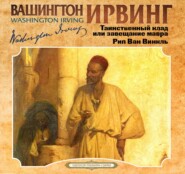По всем вопросам обращайтесь на: info@litportal.ru
(©) 2003-2024.
✖
The Life and Voyages of Christopher Columbus (Volume II)
Настройки чтения
Размер шрифта
Высота строк
Поля
Bobadilla was not so much a bad as an imprudent and a weak man. He had not considered the dangerous excesses to which his policy would lead. Rash in grasping authority, he was feeble and temporizing in the exercise of it: he could not look beyond the present exigency. One dangerous indulgence granted to the colonists called for another; each was ceded in its turn, and thus he went on from error to error, – showing that in government there is as much danger to be apprehended from a weak as from a bad man.
He had sold the farms and estates of the crown at low prices, observing that it was not the wish of the monarchs to enrich themselves by them, but that they should redound to the profit of their subjects. He granted universal permission to work the mines, exacting only an eleventh of the produce for the crown. To prevent any diminution in the revenue, it became necessary, of course, to increase the quantity of gold collected. He obliged the caciques, therefore, to furnish each Spaniard with Indians, to assist him both in the labors of the field and of the mine. To carry this into more complete effect, he made an enumeration of the natives of the island, reduced them into classes, and distributed them, according to his favor or caprice, among the colonists. The latter, at his suggestion, associated themselves in partnerships of two persons each, who were to assist one another with their respective capitals and Indians, one superintending the labors of the field, and the other the search for gold. The only injunction of Bobadilla was, to produce large quantities of ore. He had one saying continually in his mouth, which shows the pernicious and temporizing principle upon which he acted: "Make the most of your time," he would say, "there is no knowing how long it will last," alluding to the possibility of his being speedily recalled. The colonists acted up to his advice, and so hard did they drive the poor natives, that the eleventh yielded more revenue to the crown than had ever been produced by the third under the government of Columbus. In the meantime, the unhappy natives suffered under all kinds of cruelties from their inhuman taskmasters. Little used to labor, feeble of constitution, and accustomed in their beautiful and luxuriant island to a life of ease and freedom, they sank under the toils imposed upon them, and the severities by which they were enforced. Las Casas gives an indignant picture of the capricious tyranny exercised over the Indians by worthless Spaniards, many of whom had been transported convicts from the dungeons of Castile. These wretches, who in their own countries had been the vilest among the vile, here assumed the tone of grand cavaliers. They insisted upon being attended by trains of servants. They took the daughters and female relations of caciques for their domestics, or rather for their concubines, nor did they limit themselves in number. When they traveled, instead of using the horses and mules with which they were provided, they obliged the natives to transport them upon their shoulders in litters, or hammocks, with others attending to hold umbrellas of palm-leaves over their heads to keep off the sun, and fans of feathers to cool them; and Las Casas affirms that he has seen the backs and shoulders of the unfortunate Indians who bore these litters raw and bleeding from the task. When these arrogant upstarts arrived at an Indian village, they consumed and lavished away the provisions of the inhabitants, seizing upon whatever pleased their caprice, and obliging the cacique and his subjects to dance before them for their amusement. Their very pleasures were attended with cruelty. They never addressed the natives but in the most degrading terms, and on the least offence, or the least freak of ill-humor, inflicted blows and lashes, and even death itself. [102 - Las Casas, Hist. Ind., lib. ii. cap. 1, MS.]
Such is but a faint picture of the evils which sprang up under the feeble rule of Bobadilla; and are sorrowfully described by Las Casas, from actual observation, as he visited the island just at the close of his administration. Bobadilla had trusted to the immense amount of gold, wrung from the miseries of the natives, to atone for all errors, and secure favor with the sovereigns; but he had totally mistaken his course. The abuses of his government soon reached the royal ear, and above all, the wrongs of the natives reached the benevolent heart of Isabella. Nothing was more calculated to arouse her indignation, and she urged the speedy departure of Ovando, to put a stop to these enormities.
In conformity to the plan already mentioned, the government of Ovando extended over the islands and Terra Firma, of which Hispaniola was to be the metropolis. He was to enter upon the exercise of his powers immediately upon his arrival, by procuration, sending home Bobadilla by the return of the fleet. He was instructed to inquire diligently into the late abuses, punishing the delinquents without favor or partiality, and removing all worthless persons from the island. He was to revoke immediately the license granted by Bobadilla for the general search after gold, it having been given without royal authority. He was to require, for the crown, a third of what was already collected, and one half of all that should be collected in future. He was empowered to build towns, granting them the privileges enjoyed by municipal corporations of Spain, and obliging the Spaniards, and particularly the soldiers, to reside in them, instead of scattering themselves over the island. Among many sage provisions, there were others injurious and illiberal, characteristic of an age when the principles of commerce were but little understood; but which were continued by Spain long after the rest of the world had discarded them as the errors of dark and unenlightened times. The crown monopolized the trade of the colonies. No one could carry merchandises there on his own account. A royal factor was appointed, through whom alone were to be obtained supplies of European articles. The crown reserved to itself not only exclusive property in the mines, but in precious stones, and like objects of extraordinary value, and also in dyewoods. No strangers, and above all, no Moors nor Jews, were permitted to establish themselves in the island, nor to go upon voyages of discovery. Such were some of the restrictions upon trade which Spain imposed upon her colonies, and which were followed up by others equally illiberal. Her commercial policy has been the scoff of modern times; but may not the present restrictions on trade, imposed by the most intelligent nations, be equally the wonder and the jest of future ages?
Isabella was particularly careful in providing for the kind treatment of the Indians. Ovando was ordered to assemble the caciques, and declare to them, that the sovereigns took them and their people under their especial protection. They were merely to pay tribute like other subjects of the crown, and it was to be collected with the utmost mildness and gentleness. Great pains were to be taken in their religious instruction; for which purpose twelve Franciscan friars were sent out, with a prelate named Antonio de Espinal, a venerable and pious man. This was the first formal introduction of the Franciscan order into the New World. [103 - Las Casas, Hist. Ind. lib. ii. cap. 3, MS.]
All these precautions with respect to the natives were defeated by one unwary provision. It was permitted that the Indians might be compelled to work in the mines, and in other employments; but this was limited to the royal service. They were to be engaged as hired laborers, and punctually paid. This provision led to great abuses and oppressions, and was ultimately as fatal to the natives as could have been the most absolute slavery.
But, with that inconsistency frequent in human conduct, while the sovereigns were making regulations for the relief of the Indians, they encouraged a gross invasion of the rights and welfare of another race of human beings. Among their various decrees on this occasion, we find the first trace of negro slavery in the New World. It was permitted to carry to the colony negro slaves born among Christians; [104 - Herrera, Hist. Ind., decad. i. lib. iv. cap. 12.] that is to say, slaves born in Seville and other parts of Spain, the children and descendants of natives brought from the Atlantic coast of Africa, where such traffic had for some time been carried on by the Spaniards and Portuguese. There are signal events in the course of history, which sometimes bear the appearance of temporal judgments. It is a fact worthy of observation, that Hispaniola, the place where this flagrant sin against nature and humanity was first introduced into the New World, has been the first to exhibit an awful retribution.
Amidst the various concerns which claimed the attention of the sovereigns, the interests of Columbus were not forgotten. Ovando was ordered to examine into all his accounts, without undertaking to pay them off. He was to ascertain the damages he had sustained by his imprisonment, the interruption of his privileges, and the confiscation of his effects. All the property confiscated by Bobadilla was to be restored; or if it had been sold, to be made good. If it had been employed in the royal service, Columbus was to be indemnified out of the treasury; if Bobadilla had appropriated it to his own use, he was to account for it out of his private purse. Equal care was to be taken to indemnify the brothers of the admiral for the losses they had wrongfully suffered by their arrest.
Columbus was likewise to receive the arrears of his revenues; and the same were to be punctually paid to him in future. He was permitted to have a factor resident in the island, to be present at the melting and marking of the gold, to collect his dues, and in short to attend to all his affairs. To this office he appointed Alonzo Sanchez de Carvajal; and the sovereigns commanded that his agent should be treated with great respect.
The fleet appointed to convey Ovando to his government was the largest that had yet sailed to the New World. It consisted of thirty sail, five of them from ninety to one hundred and fifty tons burden, twenty-four caravels from thirty to ninety, and one bark of twenty-five tons. [105 - Muñoz, part inedit. Las Casas says the fleet consisted of thirty-two sail. He states from memory, however; Muñoz from documents.] The number of souls embarked in this fleet was about twenty-five hundred; many of them persons of rank and distinction, with their families.
That Ovando might appear with dignity in his new office, he was allowed to use silks, brocades, precious stones, and other articles of sumptuous attire, prohibited at that time in Spain, in consequence of the ruinous ostentation of the nobility. He was permitted to have seventy-two esquires, as his body-guard, ten of whom were horsemen. With this expedition sailed Don Alonzo Maldonado, appointed as alguazil mayor, or chief justice, in place of Roldan, who was to be sent to Spain. There were artisans of various kinds: to these were added a physician, surgeon, and apothecary; and seventy-three married men [106 - Muñoz, H. N. Mundo, part inedit.] with their families, all of respectable character, destined to be distributed in four towns, and to enjoy peculiar privileges, that they might form the basis of a sound and useful population. They were to displace an equal number of the idle and dissolute who were to be sent from the island: this excellent measure had been especially urged and entreated by Columbus. There was also live-stock, artillery, arms, munitions of all kinds; every thing, in short, that was required for the supply of the island.
Such was the style in which Ovando, a favorite of Ferdinand, and a native subject of rank, was fitted out to enter upon the government withheld from Columbus. The fleet put to sea on the thirteenth of February, 1502. In the early part of the voyage it was encountered by a terrible storm; one of the ships foundered, with one hundred and twenty passengers; the others were obliged to throw overboard every thing on deck, and were completely scattered. The shores of Spain were strewed with articles from the fleet, and a rumor spread that all the ships had perished. When this reached the sovereigns, they were so overcome with grief that they shut themselves up for eight days, and admitted no one to their presence. The rumor proved to be incorrect: but one ship was lost. The others assembled again at the island of Gomera in the Canaries, and, pursuing their voyage, arrived at San Domingo on the 15th of April. [107 - Las Casas, Hist. Ind., lib. ii. cap. 3, MS.]
Chapter IV
Proposition of Columbus Relative to the Recovery of the Holy Sepulchre
[1500-1501.]
Columbus remained in the city of Granada upwards of nine months, endeavoring to extricate his affairs from the confusion into which they had been thrown by the rash conduct of Bobadilla, and soliciting the restoration of his offices and dignities. During this time he constantly experienced the smiles and attentions of the sovereigns, and promises were repeatedly made him that he should ultimately be reinstated in all his honors. He had long since, however, ascertained the great interval that may exist between promise and performance in a court. Had he been of a morbid and repining spirit, he had ample food for misanthropy. He beheld the career of glory which he had opened, thronged by favored adventurers; he witnessed preparations making to convey with unusual pomp a successor to that government from which he had been so wrongfully and rudely ejected; in the meanwhile his own career was interrupted, and as far as public employ is a gauge of royal favor, he remained apparently in disgrace.
His sanguine temperament was not long to be depressed; if checked in one direction it broke forth in another. His visionary imagination was an internal light, which, in the darkest times, repelled all outward gloom, and filled his mind with splendid images and glorious speculations. In this time of evil, his vow to furnish, within seven years from the time of his discovery, fifty thousand foot-soldiers, and five thousand horse, for the recovery of the holy sepulchre, recurred to his memory with peculiar force. The time had elapsed, but the vow remained unfulfilled, and the means to perform it had failed him. The New World, with all its treasures, had as yet produced expense instead of profit; and so far from being in a situation to set armies on foot by his own contributions, he found himself without property, without power, and without employ.
Destitute of the means of accomplishing his pious intentions, he considered it his duty to incite the sovereigns to the enterprise; and he felt emboldened to do so, from having originally proposed it as the great object to which the profits of his discoveries should be dedicated. He set to work, therefore, with his accustomed zeal, to prepare arguments for the purpose. During the intervals of business, he sought into the prophecies of the holy Scriptures, the writings of the fathers, and all kinds of sacred and speculative sources, for mystic portents and revelations which might be construed to bear upon the discovery of the New World, the conversion of the Gentiles, and the recovery of the holy sepulchre: three great events which he supposed to be predestined to succeed each other. These passages, with the assistance of a Carthusian friar, he arranged in order, illustrated by poetry, and collected into a manuscript volume, to be delivered to the sovereigns. He prepared, at the same time, a long letter, written with his usual fervor of spirit and simplicity of heart. It is one of those singular compositions which lay open the visionary part of his character, and show the mystic and speculative reading with which he was accustomed to nurture his solemn and soaring imagination.

















